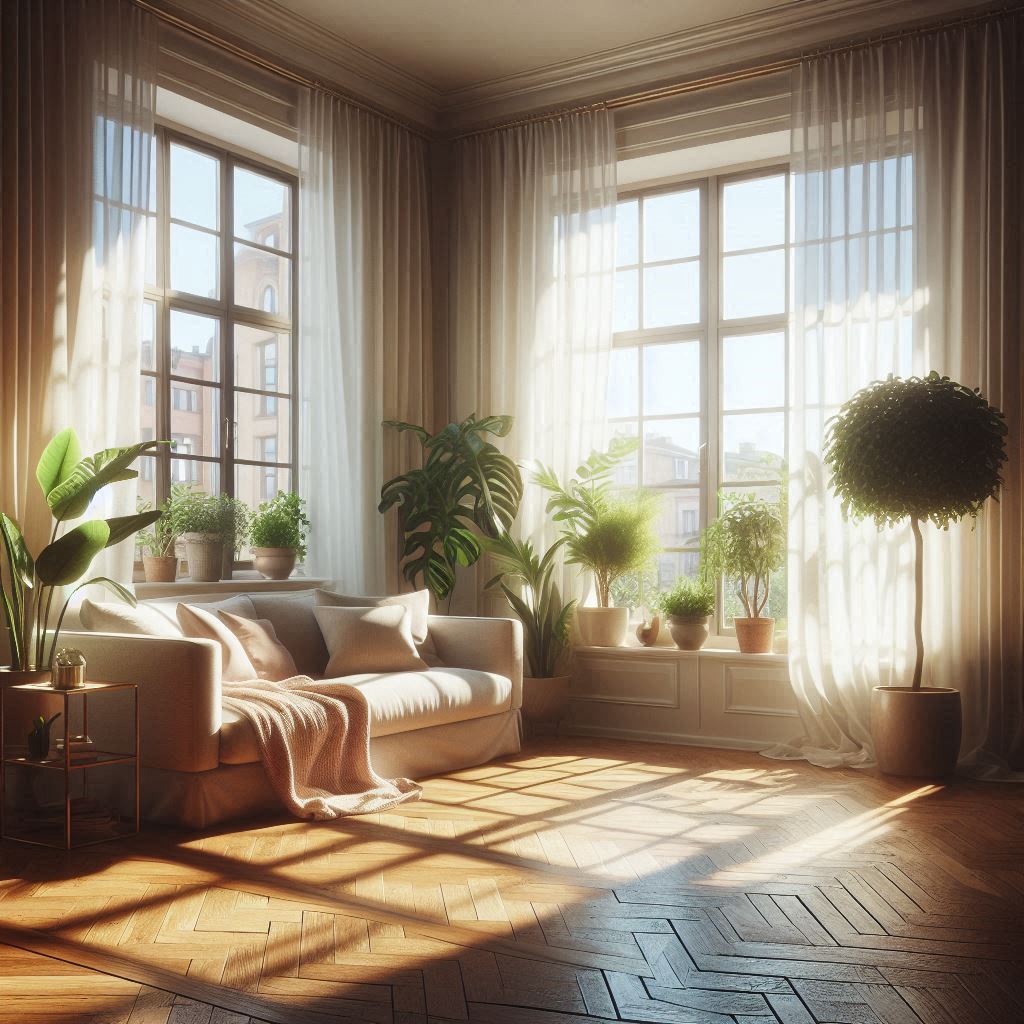Position Furniture to Maximize Light Exposure
How your furniture is arranged can significantly affect how much natural light enters your space. Place big furniture pieces, such as couches, bookshelves, and cabinets, away from windows to optimize light exposure. Bulky furniture shouldn’t obscure natural light sources because this will make the space appear smaller and darker. Instead, arrange tables or seating areas close to windows to maximize natural light. Lower-profile furniture is preferable if you want to prevent shadows from being cast. Use light-colored or reflective furniture to create an open, airy feel. These pieces will help reflect light around the space, giving it a brighter, more expansive appearance. Rearranging your furniture with natural light in mind can drastically change the atmosphere of a room, making it feel more welcoming and energized.
Use Light, Airy Window Treatments
Controlling the amount of natural light that enters your room is largely dependent on your window treatments. Dark or heavy curtains can block out light and make a room feel smaller and darker. Instead, go for airy, light fabrics that let in sunlight but still provide privacy, like sheer curtains or lightweight blinds. The softly diffused light from the sheer curtains makes the entire space feel cozy and welcoming. In order to have the flexibility to block out light when necessary, you can also combine sheer curtains with blackout drapes. Furthermore, neutral or light-colored blinds can control light levels and add brightness to a space. You may harness the power of natural light to make your living area feel more spacious, light-filled, and serene by choosing the appropriate window treatments.
Enhance Natural Light with Mirrors and Reflective Surfaces
Reflective surfaces and mirrors are great additions to a room’s natural lighting. Mirrors next to or across from windows can be positioned carefully to reflect light deeper into the space, giving the impression that it is bigger and brighter. An enormous mirror placed against a window, for instance, can practically double the amount of natural light that enters the space. Comparably, light can be reflected from reflective surfaces such as glass tables, metallic accents, or glossy furniture finishes, bringing brightness into the room without taking up unnecessary space. This trick works especially well in smaller, darker rooms where there may not be as much natural light. In addition to adding brightness and depth, mirrors and reflective décor also give the space a feeling of openness and spaciousness.
Keep Your Space Clean and Uncluttered
A clear, clutter-free space is necessary to let in plenty of natural light. A room can appear smaller and darker due to shadows and light obstructions caused by clutter. Choose a minimalist décor style and keep your surfaces free of extraneous items to maximize natural light. The key to creating lighter, brighter spaces is usually to minimize visual distractions so that sunlight can draw attention to the best elements of the space. Keep your windows clean on a regular basis to guarantee that the most light can pass through them. A room’s brightness can be diminished by dirt, grime, or streaks on the windows; therefore, maintaining clean windows allows natural light to flow through without obstruction. In addition to appearing more welcoming, a neat, organized area lets in more natural light, which brightens the entire space.
